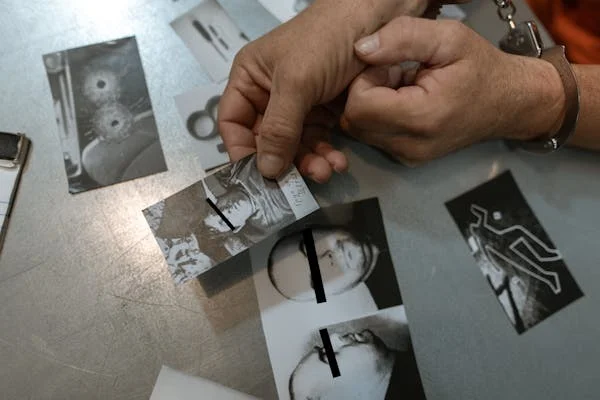Introduction
In an era where images and information travel rapidly across social media platforms, the Meldadel Mugshot became a focal point for discussions on privacy, ethics, and the legal implications of online content. This article explores the details surrounding the viral nature of the mugshot, its legal impact, and the broader implications of sharing sensitive content in the digital age.
What is the Meldadel Mugshot?
Why Did the Meldadel Mugshot Go Viral?
Several factors contributed to the viral nature of the Meldadel Mugshot. The combination of social media’s reach and human curiosity about crime and justice made this image gain attention far beyond its original context.
- Social Media Amplification: Platforms like Twitter, Instagram, and Facebook played key roles in spreading the image. Users shared it widely, adding hashtags, comments, and memes, which significantly increased its visibility.
- Psychological Appeal: People are drawn to mugshots because they often suggest a deeper story. The image sparked curiosity about the individual’s arrest and background.
- Media Coverage: Traditional media outlets picked up on the image and reported on it, further extending its exposure.
The Role of Social Media Algorithms in Viral Content
Social media platforms are designed to prioritize content that generates high engagement. The Meldadel Mugshot benefited from this system, as the image’s controversial nature led to a surge in likes, shares, and comments, making it appear on more users’ feeds.
| Impact of Social Media | Explanation |
| Viral Spread | Algorithms amplified the image’s reach by prioritizing high engagement. |
| Sensationalism | Platforms often push sensational content, increasing its visibility. |
| Lack of Content Moderation | The image spread rapidly without sufficient checks or privacy considerations. |
Legal and Ethical Concerns Regarding Mugshots
The Meldadel Mugshot sparked a debate about the legality and ethics of sharing arrest photos online. While these images are typically public records, the consequences of their widespread dissemination can be severe.
1. Privacy Concerns
One of the most prominent concerns is the potential violation of privacy. Arrest images often capture individuals at a vulnerable moment, and once shared online, these images become difficult to remove. Critics argue that individuals should have more control over their personal images, especially if they have not been convicted of a crime.
2. Public Shaming and its Impact
Viral mugshots often lead to public shaming, as people are quick to judge others based on limited information. The Meldadel Mugshot is a clear example of how public sharing can affect someone’s reputation. Social media users may form judgments based on a single image, potentially leading to harm in both personal and professional aspects of the individual’s life.
3. Legal Implications of Sharing Mugshots
The Psychological Impact of Viral Mugshots
Viral mugshots often lead to psychological consequences for those involved. As the Meldadel Mugshot shows, the rapid spread of an arrest photo can create a lasting emotional toll on the individual, including feelings of embarrassment, anxiety, and social stigma.
Public Perception and Reputation Damage
Once an image goes viral, it can become part of a person’s digital footprint. This means that even if the individual is never convicted, the viral mugshot may continue to affect their reputation for years to come.
How Viral Mugshots Influence Public Opinion
The public’s opinion of individuals depicted in viral mugshots is often shaped by the image alone, without any additional context. In the case of the Meldadel Mugshot, people may form opinions based solely on the arrest photo, which may not accurately reflect the circumstances or the individual involved.
The Influence of Media Reports
Media outlets often pick up viral stories, adding their own interpretations to the image. This amplifies the public’s perception and often leads to a skewed understanding of the situation.
Should Mugshots Be Shared by Law Enforcement?
There is an ongoing debate about whether law enforcement should freely release mugshots to the public. While some argue that transparency and public access to information are crucial, others believe that mugshots should only be shared when necessary, and should be taken down once a person is proven innocent.
Arguments in Favor of Sharing Mugshots
- Transparency in Law Enforcement: Public access to arrest photos ensures transparency in the criminal justice system.
- Public Right to Know: The public has a right to be informed about criminal activity, and mugshots serve as an important part of that information.
Arguments Against Sharing Mugshots
- Invasion of Privacy: Mugshots can infringe upon an individual’s privacy, especially when they are not convicted of any crime.
- Risk of Public Shaming: The spread of mugshots can result in long-lasting social and professional consequences for those depicted.
The Growing Need for Legal Reforms
As incidents like the Meldadel Mugshot demonstrate, the law has not fully kept pace with the digital age. There is a growing need for legal reforms to protect individuals from the public exposure of their mugshots without due process.
Proposals for Legal Reform
- Stronger Privacy Laws: Advocate for stronger privacy laws that prevent sharing mugshots without consent, especially when the individual has not been convicted.
- Regulation of Social Media:Platforms must take responsibility for allowing harmful content to spread and develop clearer guidelines for handling mugshots.
The Ethical Responsibility of Social Media Users
Social media users have a responsibility to consider the potential consequences of sharing sensitive content, including mugshots. The Meldadel Mugshot underscores the need for ethical decision-making when it comes to sharing images that could harm an individual’s reputation.
Promoting Ethical Digital Behavior
- Think Before Sharing: Consider the potential impact of sharing mugshots, especially if they could cause harm.
- Respect for Privacy: Users should respect the privacy of others and refrain from spreading sensitive content that could lead to embarrassment or public shaming.
The Role of Media Outlets in Handling Mugshots
Media outlets play a significant role in how mugshots are perceived by the public. By choosing to report on viral mugshots, the media can either contribute to public shaming or raise awareness about the implications of sharing such images.
Ethical Journalism and Mugshots
- Accuracy and Context: Journalists should ensure that they provide accurate information and context when reporting on mugshots.
- Avoid Sensationalism: Media outlets should refrain from sensationalizing arrest photos and should be mindful of the impact their coverage can have on the individual involved.
Moving Toward Better Digital Practices
The Meldadel Mugshot serves as a reminder of the importance of adopting ethical practices when handling sensitive information online. Social media platforms, users, and media outlets all play a role in ensuring that individuals’ privacy is respected while also balancing the public’s right to know.
Conclusion
The Meldadel Mugshot is more than just an arrest photo; it is a case study in the intersection of privacy, ethics, and the power of social media. As this image went viral, it sparked important discussions about the consequences of sharing mugshots online and the need for legal and ethical reforms in the digital age. Moving forward, it is crucial to establish clearer guidelines and protections to ensure that individuals’ privacy rights are respected and that social media and media outlets use their power responsibly.
FAQs about the Meldadel Mugshot
What led to the viral spread of the Meldadel Mugshot?
The Meldadel Mugshot went viral due to social media algorithms amplifying user engagement. As the image sparked curiosity and discussion, it quickly gained attention across various platforms, growing in visibility.
What are the legal concerns surrounding mugshot sharing?
Mugshot sharing can raise privacy issues and may lead to public shaming before an individual is convicted. Some sites charge for mugshot removal, raising legal concerns about exploitation and fairness.
How do social media algorithms influence viral content?
Social media platforms promote content based on user interaction. As more users engage with an image, the algorithm pushes it to a wider audience, contributing to its virality.
Should mugshots be freely shared by law enforcement?
While mugshots are public records in some areas, sharing them before a conviction can be harmful. Balancing transparency with privacy protection is an ongoing issue.
What reforms are needed to protect individuals from viral mugshots?
Stronger privacy laws and policies to remove mugshots if charges are dropped or the individual is acquitted are needed. Social media platforms should also take more responsibility in moderating harmful content.
How can social media users ensure responsible sharing of mugshots?
Users should be cautious about sharing mugshots, considering their potential to harm individuals, especially if they haven’t been convicted. Responsible sharing means respecting privacy and avoiding sensationalism.






